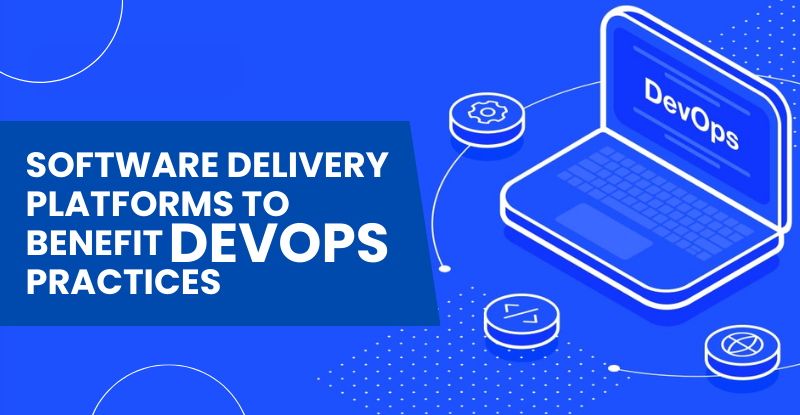Software Delivery Platforms to Benefit DevOps Practices
In the fast-paced world of software development, the adoption of DevOps practices has become essential for organizations striving to deliver high-quality software quickly and efficiently. To accelerate this transformation, software delivery platforms have emerged as powerful tools that can significantly benefit DevOps practices. In this article, we will explore how these platforms are changing the game and why they are crucial for modern development pipelines.
Understanding DevOps
DevOps is a cultural and technical movement that seeks to break down the traditional silos between development and operations teams. It emphasizes collaboration, automation, continuous integration, and continuous delivery (CI/CD) to create a more streamlined and efficient software development process. DevOps practices aim to shorten development cycles, improve deployment frequency, and ensure the reliability of applications.
The Role of Software Delivery Platforms
Software delivery platforms act as enablers for DevOps practices. They provide a centralized and integrated environment for managing and automating various stages of the software development lifecycle. Here’s how these platforms benefit DevOps:
-
Automation and Orchestration
Software delivery platforms enable the automation of repetitive tasks and the orchestration of complex workflows. This reduces manual errors, speeds up development cycles, and ensures consistency in the delivery process. Automation and orchestration are the backbone of DevOps, and these platforms make it easier to implement them effectively.
-
Continuous Integration and Continuous Delivery (CI/CD)
CI/CD is a fundamental DevOps practice that involves the automated building, testing, and deployment of code changes. Software delivery platforms simplify the setup and management of CI/CD pipelines, allowing development teams to release new features and fixes with greater speed and confidence.
-
Version Control and Collaboration
Effective version control and collaboration are critical in DevOps. Software delivery platforms often integrate with popular version control systems (e.g., Git) and provide tools for seamless collaboration among development and operations teams. This fosters transparency and enhances communication.
-
Infrastructure as Code (IaC)
The concept of “Infrastructure as Code” approaches the delivery and control of infrastructure as code. Software delivery platforms support IaC by allowing teams to define and manage their infrastructure in a code-like manner. This enhances infrastructure reliability, repeatability, and scalability.
-
Monitoring and Analytics
To ensure that applications perform as expected, DevOps teams rely on monitoring and analytics. Many software delivery platforms offer built-in monitoring tools and integrations with third-party monitoring solutions, enabling teams to gather insights into the performance of applications and infrastructure.
-
Security and Compliance
Compliance and security are crucial to modern software development. Software delivery platforms often include security and compliance features that help teams detect vulnerabilities, implement security measures, and ensure adherence to industry regulations.
-
Flexibility and Scalability
As organizations grow and their software projects become more complex, software delivery platforms offer the flexibility and scalability needed to support larger development teams and increasingly intricate systems. This adaptability is vital for DevOps to thrive in diverse environments.
Benefits of Software Delivery Platforms for DevOps
The adoption of software delivery platforms can yield several benefits for DevOps practices:
- Faster Time to Market: Automation and streamlined processes reduce development and deployment times, enabling organizations to release software updates more frequently and stay competitive.
- Increased Collaboration: These platforms foster collaboration between development and operations teams, leading to better communication and shared responsibility.
- Improved Quality: Automated testing and continuous integration lead to higher-quality software, with fewer defects and a better user experience.
- Enhanced Security: DevOps practices, when supported by these platforms, can integrate security measures at every stage of the development pipeline, reducing vulnerabilities and compliance risks.
- Cost Savings: By eliminating manual, time-consuming tasks and reducing errors, organizations can save on operational costs.
Leading Software Delivery Platforms
There are various software delivery platforms available, each with its own set of features and capabilities. Some of the leading platforms include:
- Jenkins: A widely used open-source automation server that supports building, deploying, and automating projects.
- CircleCI: A cloud-based CI/CD platform that simplifies the automation of software delivery.
- GitLab: A complete DevOps platform with features for version control, CI/CD, and security.
- Travis CI: A cloud-based CI/CD service that helps automate building and testing workflows.
- AWS CodePipeline: Part of Amazon Web Services (AWS), this platform offers a fully managed CI/CD service.
- JFrog Artifactory: A universal repository manager that facilitates the management of binary artifacts and dependencies.
Conclusion
DevOps practices are no longer optional for organizations that seek to remain competitive in the ever-evolving world of software development. Software delivery platforms play a pivotal role in implementing and scaling DevOps, offering automation, orchestration, collaboration, and security features that are essential for successful development pipelines. As you embark on your DevOps journey, consider how these platforms can revolutionize your processes, empower your teams, and ultimately drive your software development efforts to new heights. With the right software delivery platform, your organization can embrace DevOps practices with confidence and reap the rewards of improved efficiency and software quality.

